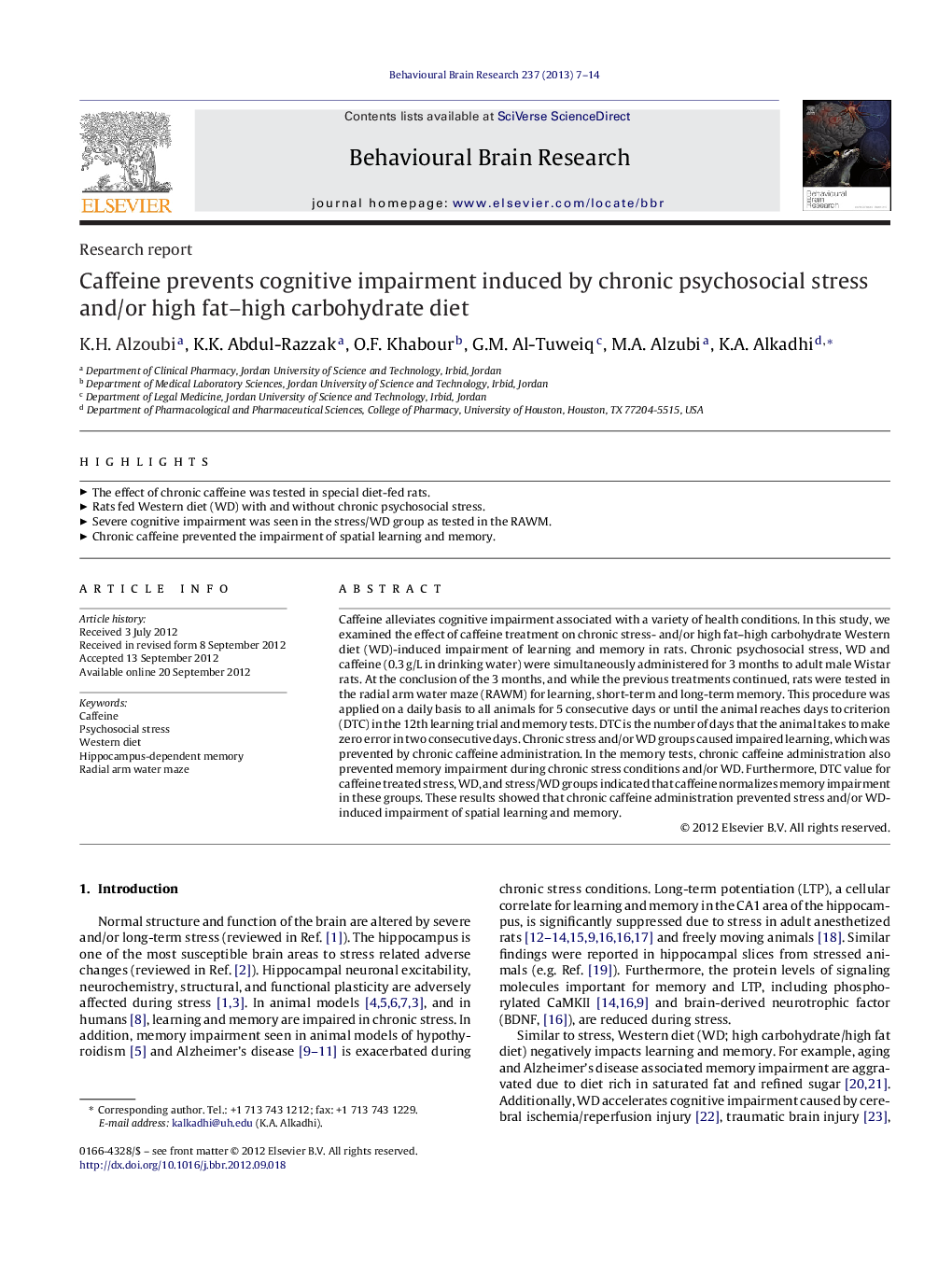| Article ID | Journal | Published Year | Pages | File Type |
|---|---|---|---|---|
| 6259305 | Behavioural Brain Research | 2013 | 8 Pages |
Caffeine alleviates cognitive impairment associated with a variety of health conditions. In this study, we examined the effect of caffeine treatment on chronic stress- and/or high fat-high carbohydrate Western diet (WD)-induced impairment of learning and memory in rats. Chronic psychosocial stress, WD and caffeine (0.3Â g/L in drinking water) were simultaneously administered for 3 months to adult male Wistar rats. At the conclusion of the 3 months, and while the previous treatments continued, rats were tested in the radial arm water maze (RAWM) for learning, short-term and long-term memory. This procedure was applied on a daily basis to all animals for 5 consecutive days or until the animal reaches days to criterion (DTC) in the 12th learning trial and memory tests. DTC is the number of days that the animal takes to make zero error in two consecutive days. Chronic stress and/or WD groups caused impaired learning, which was prevented by chronic caffeine administration. In the memory tests, chronic caffeine administration also prevented memory impairment during chronic stress conditions and/or WD. Furthermore, DTC value for caffeine treated stress, WD, and stress/WD groups indicated that caffeine normalizes memory impairment in these groups. These results showed that chronic caffeine administration prevented stress and/or WD-induced impairment of spatial learning and memory.
⺠The effect of chronic caffeine was tested in special diet-fed rats. ⺠Rats fed Western diet (WD) with and without chronic psychosocial stress. ⺠Severe cognitive impairment was seen in the stress/WD group as tested in the RAWM. ⺠Chronic caffeine prevented the impairment of spatial learning and memory.
